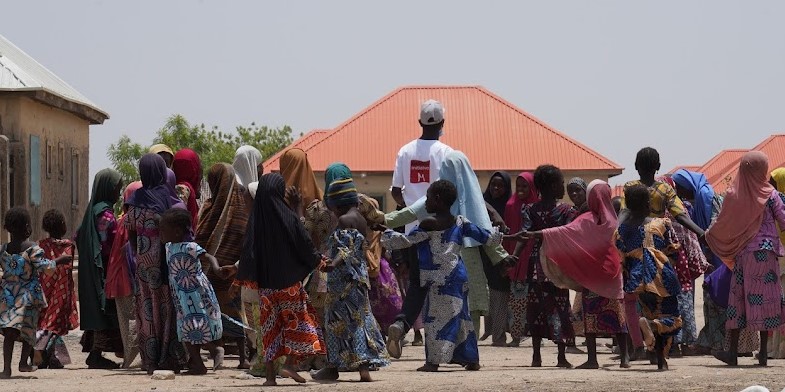20 years ago today, Richard Allan founded The MENTOR Initiative to reduce death and suffering from tropical diseases in humanitarian crises.
MENTOR was established to deliver emergency healthcare quickly and effectively in the most dire, complex situations drawing from Richard’s specialist knowledge and disease control experience.
The first programme was researching the efficacy of Insecticide Treated Plastic Sheeting (ITPS) in a camp for refugees from Liberia in Sierra Leone to control malaria in children.
This pivotal study led to the development of new tools and solutions to control malaria and other diseases.
Since then, MENTOR has developed, researched and delivered integrated vector management in 18 countries from Angola to Yemen helping to save millions of lives.
Richard, CEO/Director, said:
“I could never have imagined when we began 20 years ago with just two people that MENTOR would grow to be what it is today reaching over 10 million people every year. Yet we’re still evolving, learning and impacting more lives by the day two decades on.
Over the years I’ve learnt how important maintaining a clear vision and purpose is to build a strong organisation that focuses on how our particular skillset can best serve people.
Looking at what we’ve achieved over the years, some key events have shaped the organisation and the work we do. As one of the first to respond to the Boxing Day tsunami in 2004, we applied what we knew about malaria prevention to other vector borne diseases in Banda Aceh, Indonesia.
Whilst working in refugee camps in a region of Chad that borders Darfur, Sudan in 2006, the team faced unprecedented security threats from militias. Managing this situation and learning from it has made it possible to work in some settings virtually no other NGO can operate in.
We delivered our first large-scale malaria and dengue control emergency programme in Africa in 2006. This was in response to catastrophic flooding in a highly insecure border region of NE Kenya and Somalia.
And there was another first in Myanmar after Cyclone Nargis in 2008 as 2000 local volunteers helped deliver dengue control. This gave us the confidence to take on a national workforce and build long-term disease control and surveillance systems.
Since 2013 a new scale of ongoing vector borne disease control in Syria has been uniquely tackling just one disease – leishmaniasis – an endemic disease that has exploded since the start of the war.
With this experience of working in active conflict, in the last decade we have expanded emergency healthcare and disease control support to conflict and flood-afflicted settings, from Mozambique to northern Nigeria.
Going into Ukraine in 2022 to help co-ordinate medical logistics and support the healthcare systems for millions of people impacted by the war showed that we could repurpose our skillset for a new type of challenge.
We formed close relationships with health authorities and business partners in Ukraine to mobilise existing networks that now provide healthcare which is severely impacted by the conflict.
So far, MENTOR has imported and distributed over 20 tons of medical commodities valued at approximately $5.2 million to 43 health facilities across the country and to the Ukrainian Ministry of Health.
We face considerable challenges over the next few years with climate change and new and ongoing conflict threatening the progress being made to tackle the world’s deadliest diseases.
But together with our partners and an extraordinary team, MENTOR will continue to reach and protect the most vulnerable people with the greatest needs amongst populations that are displaced, isolated or forgotten.”
MENTOR is currently working with partners in Angola, Central African Republic, Mozambique, Nigeria, South Sudan, Syria, Ukraine, Venezuela and Yemen.
For more information, please see our latest Annual Report

